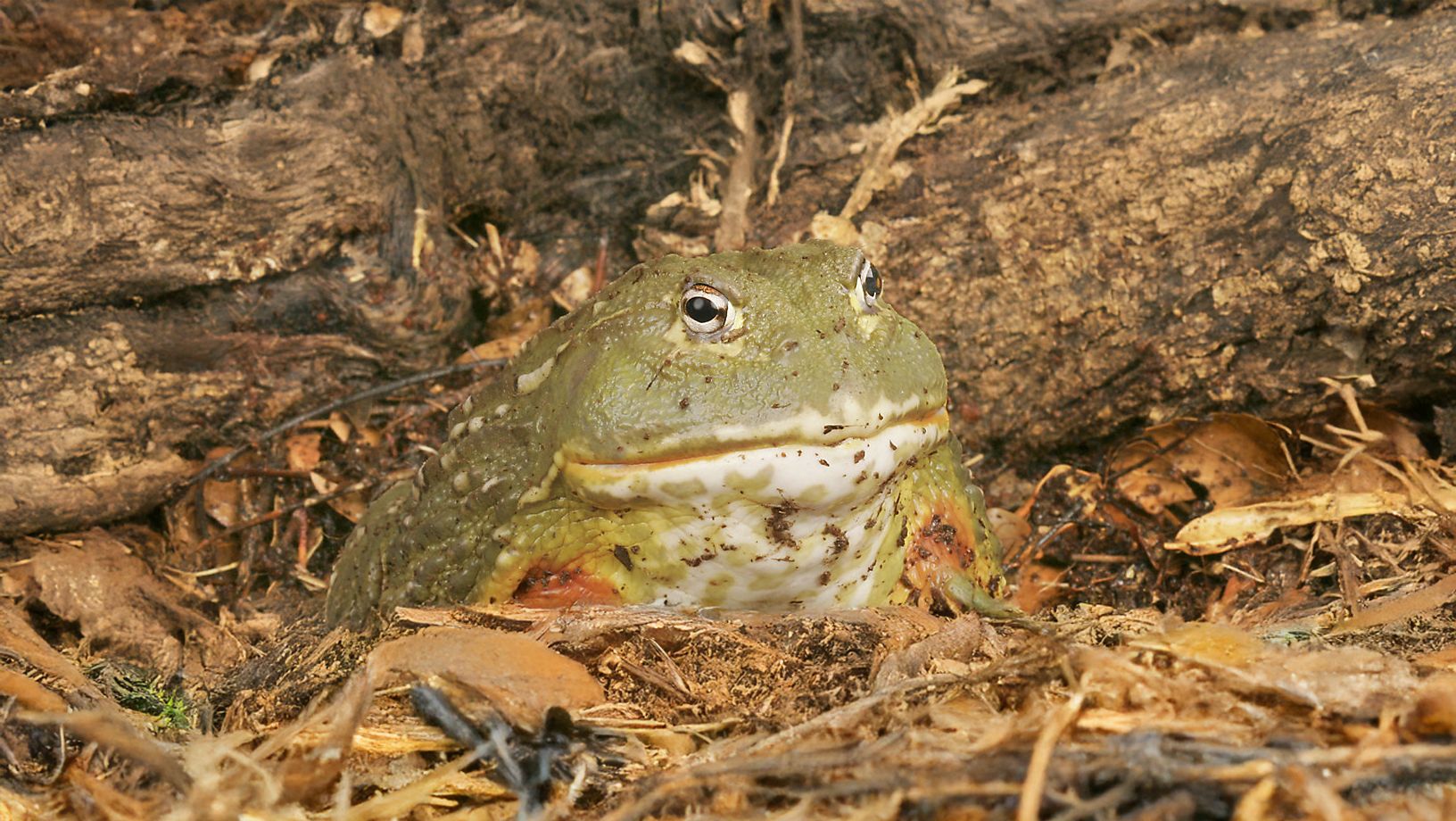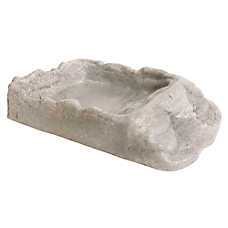A Set-up Guide for Your New Pixie Frog

In this Article
Five things to know about your pixie frog
- Pixie frogs can live up to 20 years
- They can grow about nine inches long
- They need both water and land areas in their habitat
- They’re not to be trusted with roommates — they’ll eat them if they get a chance
- They’re best for pet parents with some previous experience
Your pixie frog’s habitat
Pixie frogs will eat other pixie frogs or any other animals you put in their home — even larger ones! So it’s best to let the little predators live alone.
A pixie frog’s terrarium should be at least 10 gallons with a screened lid.
Choosing habitat décor for your frog
- Line the bottom of the terrarium with 2 to 3 inches of coconut-fiber or bark bedding — frogs enjoy burrowing in it. Scoop the poop at least once a week and change out the bedding completely once a month.
- Provide a large, shallow bowl of water for your pixie frog to soak in; or push the bedding to one side of the terrarium and let it slope down into a water area. (They’ll get their own private beach!)
- Stock the terrarium with live or artificial branches for hiding and climbing.
Heat & lights
- Pixie frogs are nocturnal, meaning they’re more active at night. They don’t require sunlight, but they do need lighting that mimics a day and a night cycle in their habitat. If they’re in a dim room, light the terrarium for 12 hours a day with a fluorescent bulb.
- At night, switch to a night-specific bulb so you can watch your frog with minimum disturbance.
- Your frog’s terrarium should range between 75 and 85 degrees Fahrenheit during the day, and 65 F to 75 F at night. If necessary, use a heat bulb or a night-specific heat lamp to maintain habitat warmth. A thermometer at each end of the habitat will help you monitor the temperature.
- Humidity levels should be between 50% and 80%. Use a hygrometer — a device that measures humidity — to help keep track.
Help keep your pixie frog healthy
Pixie frogs need Vitamin D in their diet.
Try not to handle new pixie frogs for three or four days to give them a chance to get acclimated to their new surroundings. Whether your frog is new or settled-in, be sure to contact a vet if you notice any of these symptoms of illness or distress:
- More time spent hiding
- Eating or drinking less; weight loss
- Discolored skin
- Swollen joints
- Discharge from the eyes, nose or mouth
- Runny droppings for more than two days
PETSMART CARES
Pets purchased at PetSmart are part of our exclusive Vet Assured™ program, designed by PetSmart veterinarians to help improve the health and well-being of our pets. Our vendors meet a high standard in caring for pets and screening them for common illnesses. This program also includes specific standards for in-store pet care.
The PetSmart Promise: If your pet becomes ill during the initial 14-day period, or if you’re not satisfied for any reason, PetSmart will gladly replace the pet or refund the purchase price.
